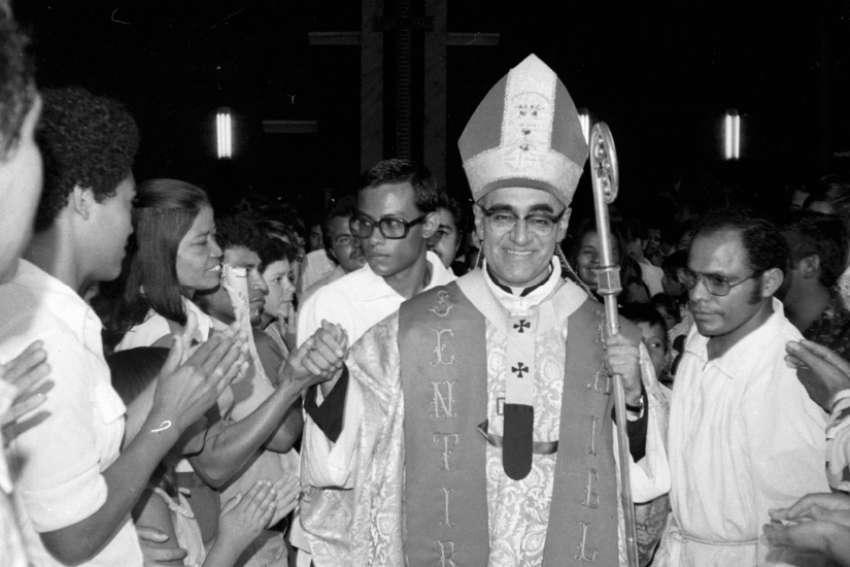Romero will be remembered, praised and celebrated in Masses, concerts, films and lectures before, during and after the Roman liturgy to declare Romero a saint, along with six others. Though the Salvadoran archbishop is being canonized by the Church, he is also being celebrated across the lines of faith, reaching out to all corners of the world.
The martyr of the Salvadoran Civil War is remembered intensely in Toronto’s Salvadoran community, many of them refugees from the war that killed at least 75,000 between 1980-92, said Romero House co-founder Jesuit Fr. Jack Costello.
“Because he was an archbishop, a bishop unlike all others,” Costello said. “He poured his life out on the ordinary people. He was in the kitchens of the very ordinary people, asking for their views. This was remarkable.”
That close bond between Romero and the sort of people who normally have no influence in important matters of Church and state has made him a saint loved well beyond the borders of El Salvador.
“That sense of liberating people to go beyond fear in a situation that generated fear — this is remarkable and always sacred,” said Costello.
The Toronto celebration of Romero begins 10 days before his ordination with an opportunity to hear from people who met and spoke with the archbishop. “Stories of Romero: As Told By People Who Knew Him” starts at 7 p.m., Oct. 4 at the Quaker House, 60 Lowther Ave.
For people who have worked, volunteered and lived at Toronto’s Romero House over the last 25 years, the spirit of Romero has been an important guide in their work with refugees, said Costello.
“He has been a patron of remarkable power for us,” he said. “Generating a sense of wanting to be truly spiritual, truly just and truly humble. That, for me, is why it (Romero’s canonization) could be very important here.”
The others being canonized on Oct. 14 include: Blesseds Pope Paul VI, Francesco Spinelli, Vincenzo Romano and Nunzio Sulprizio, all of Italy; Mother Catherine Kasper of Germany, and Nazaria Ignacia March Mesa of Spain.


